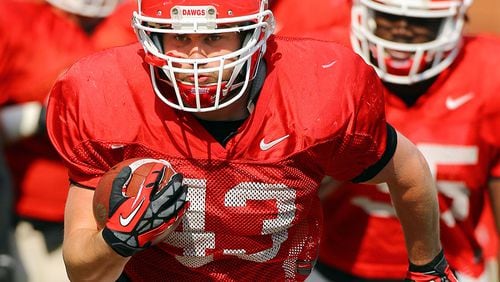The University of Georgia will be one of several institutions across the nation to take part in a study aimed to improve the understanding of concussions in athletics and how to change their prevalence in college and youth sports.
The Knight Commission on Intercollegiate Athletics met Monday in an ongoing effort to address the concussion crisis, outlining the NCAA’s plan to implement new medical guidelines, conduct further research and develop future safety initiatives.
“The elephant in the room was concussions,” said Brian Hainline, who was hired as the NCAA chief medical officer in January 2013. “There is a collective sense of desperation out there. The desperation is about the broken model that we have.”
Former UGA President Michael Adams, a current member of the Knight Commission, said the University of North Carolina will be one of four schools to participate in an advanced research study. Hainline said Georgia and other schools will participate in a clinical study.
“There will be a test school, in our case Chapel Hill, then there will be three others for broader sample, of which Georgia will be included,” Adams said.
Hainline described a two-fold NCAA strategy to specifically address concerns about the damage caused during concussions and, secondly, determine how policies and education can diminish the concussion rate.
The first step is a prospective, longitudinal study that will include 14 member institutions and close to 40,000 male and female student-athletes while studying football and men’s and women’s lacrosse and soccer.
The committee expects to have at least 600 concussion cases to examine by the end of the three-year study. Players will undergo baseline exams and, after each concussive event during their career, will receive follow-up exams the day after, within 48 hours and then every six months. Athletes will have basic blood work done, wear head sensors during practice and receive genetic testing.
The other project will be the Mind Matters Challenge, an NCAA and Department of Defense grant which will ask physicians, trainers and scientists from 1,100 NCAA schools to build a consortium of data on how to diminish concussions and the stigma behind under-reporting them.
“The universal consensus is that, to date, we do not understand the natural history of a concussion,” Hainline said. “The largest studies have perhaps 30 concussions.”
When Georgia fullback Merritt Hall was medically disqualified in August from playing any longer after sustaining at least three concussion in two years, he faced the same predicament posed to countless other college athletes: At what point does the risk of long-term brain damage trump the love of the game?
The national conversation comes after healthy student athletes similar to Hall, a tough-as-nails former walk-on who became a starter, continue to be sidelined by brain injuries that can have devastating effects if not addressed.
As members of the commission questioned Hainline about whether parents should consider holding their children out of football or other sports perceived as dangerous, he gave an impassioned defense of athletic endeavors.
“Sport is extraordinary,” said Hainline, a former tennis player for Notre Dame. “But we have to get it right.”
About the Author






